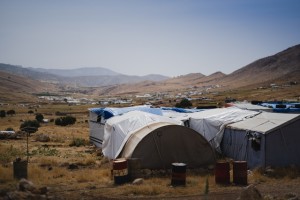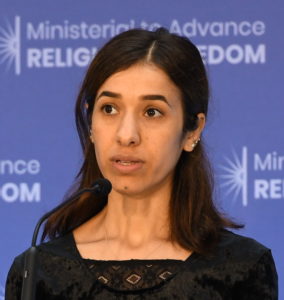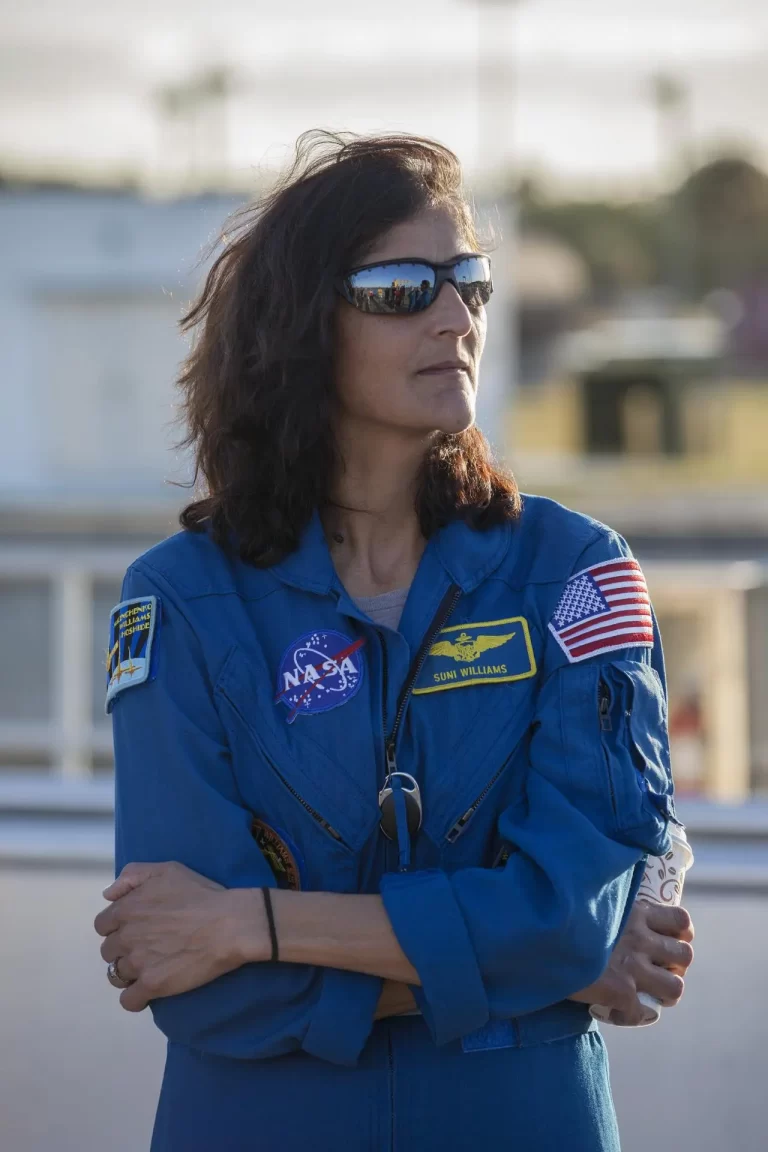
A Yazidi camp in Sinjar, Iraq Photo by Levi Meir Clancy on Unsplash
Yazidi survivor of ISIL atrocities Nadia Murad urges world leaders to act on Team’s evidence
New York: Islamic State in Iraq and the Levant (ISIL/Da’esh) committed genocide against the Yazidi and war crimes against unarmed cadets and military personnel at Tikrit Air Academy, the head of the United Nations team investigating these atrocity crimes told the Security Council on May 10, 2021.
Yazidis are an endogamous and mostly Kurmanji-speaking minority, who largely live in the disputed territories of Northern Iraq.
“A landmark moment has been reached in our work, with initial case briefs completed in relation to two key investigative priorities,” said Karim Asad Ahmad Khan, Special Adviser and Head of the United Nations Investigative Team to Promote Accountability for Crimes Committed by Da’esh/Islamic State in Iraq and the Levant (UNITAD), in a briefing on the sixth report of the Team.
“I can confirm to the Council that based on our independent criminal investigations, UNITAD has established clear and convincing evidence that genocide was committed by ISIL against the Yazidi as a religious group,” he said, noting that the intent of ISIL to destroy the Yazidi, physically and biologically, is manifest in its ultimatum — applied remorselessly to all members of their community — to convert or die.
Thousands were killed pursuant to this ultimatum, either executed en masse, shot as they fled, or dying from exposure on Mount Sinjar as they tried to escape, he said, adding that thousands more were enslaved, with women and children abducted from their families and subjected to the most brutal abuses, including serial rape and other forms of unendurable sexual violence. For many, this abuse lasted years, often leading to death. The intent of these acts was to permanently destroy the capacity of these women and children to have children and build families within the Yazidi community.
Furthermore, the Team has established that numerous other international crimes were also committed against the Yazidi community, including extermination, enslavement, sexual violence, forcible transfer, persecution on religious and gender grounds, and conscription of children into an armed group, he added. “But let us not forget, these crimes are ongoing,” he warned, expressing the Team’s determination to ensure justice for all those impacted by these crimes.
Turning to the June 2014 attacks by ISIL on predominantly Shia unarmed air cadets and personnel from Tikrit Air Academy, he said the Team has compiled and analysed extensive evidence detailing their capture, torture and mass execution. Based on its independent investigative work, he said, “the Team has concluded that these acts constitute the war crimes of murder, torture, cruel treatment and outrages upon personal dignity.” It has also concluded, based on clear and convincing evidence, that a Da’esh video — released in July 2015 showing these killings — constitutes a direct and public incitement to commit genocide against Shia Muslims. The narration glorifying the horrifying images of these mass executions contains a repeated and clear exhortation to ISIL followers: “Kill them wherever you find them.”
Information obtained from ISIL electronic devices has also led to the opening of a new investigation into the development and successful deployment of chemical and biological weapons by ISIL in Iraq, he said. Evidence collected to date details how ISIL used laboratories at Mosul University as the epicentre of its chemical weapons programme, drawing on the expertise of scientists and medical professionals from Iraq and abroad. Initially weaponizing chlorine from water treatment plants overtaken in 2014, ISIL subsequently developed toxic lethal compounds including thallium and nicotine that were tested on live prisoners, leading to death. As its capacity strengthened, it developed a sulfur mustard production system that was deployed in March 2016 through the firing of 40 rockets at the Turkmen Shia town of Taza Khurmatu.
This investigation is developing rapidly, with an initial case brief anticipated to be completed and available to national authorities within five months, he said. By the end of 2021, the Team also anticipates the completion of case briefs addressing crimes committed against Christian, Kaka’i, Shabak, Shia Turkmen and Sunni communities in Iraq, as well as the massacre of predominantly Shia inmates at Badush prison.
However, to fulfil the Team’s mandate and to meet the expectations of survivors, its work must be put before national courts to prosecute those responsible for the horrific crimes, he stressed. Arrangements have now been put in place with the Iraqi judiciary to transfer evidence collected by the Team concerning financial crimes committed in support of ISIL activities in Iraq. This represents an important initial step in ensuring that the Team’s work contributes tangibly to accountability efforts in Iraq, he noted.
Expressing support for efforts by the Iraqi Council of Representatives to adopt legislation establishing a legal basis for the prosecution of ISIL members in Iraq for war crimes, crimes against humanity and genocide, Khan said this will be a further crucial step towards the delivery of comprehensive accountability for ISIL crimes in Iraq. In addition, legislation was presented before the Parliament of the Kurdistan Region to establish a court with jurisdiction over international crimes committed by ISIL, he added, describing the adoption of this law as potentially representing an important moment in efforts to achieve the full implementation of the Team’s mandate.
Drawing attention to a series of steps he outlined in his report that would allow for the conduct of trials in Iraq, he believes it is possible that such trials could begin next year.
The biannual briefing was Khan’s last appearance before the Council in his current capacity, as he is transitioning to his new role as Prosecutor of the International Criminal Court. Recalling that the Team, established in September 2017, began its work with only five staff members, he said that UNITAD, with more than 200 personnel deployed, “is now a fully functioning investigation team capable of addressing some of the key challenges faced by national authorities in prosecuting ISIL members for their crimes in Iraq”.
Innovation and partnership played key roles in advancing the Team’s work, he said, explaining how the application of artificial intelligence and machine learning tools in the analysis of internal ISIL databases now allow the Team to establish clear timelines of activities of key ISIL members, and how the Team has strengthened partnership with Iraqi authorities, survivor groups, non-governmental organizations and religious leaders.

After the Special Adviser’s briefing, Nadia Murad, Nobel Peace Prize Laureate, a Yazidi and survivor of ISIL/Da’esh atrocities, recalled her address to the Council in 2017, requesting its support to ensure that ISIL/Da’esh did not succeed in its goal of eradicating the Yazidi people from Iraq. She called the Council to examine the human lives impacted by the UNITAD mandate. In digital platforms, artificial intelligence and data analysis, the findings are “monumental” because each data point represents a human life. Together, this evidence tells the story of the Yazidi people, including herself. She will never forget the grief in her mother’s eyes when she realized her son had been executed — not knowing that she would face the same fate. She said she can still feel her niece’s hand being ripped from her own as they were separated and loaded onto buses like cattle, and still calculate what her body was worth to those who bought and sold it.
For nearly seven years, Yazidis have been unable to resume their lives, she said, noting that more than 200,000 are living displaced in camps only hours away from their homeland. They wait in hope for the restoration of Sinjar’s security, governance and infrastructure. Thousands of families hold out hope for the day when the remains of their relatives will be exhumed from mass graves. The true horror exists, however, for the 2,800 women and children who remain in ISIL/Da’esh captivity. This terrorist group never attempted to hide its intentions: Mass graves were clearly marked and decrees issued on the immorality of Yazidism. Manuals were published to codify the slave trade. The sale of Yazidi women still takes place online. “Their intent to eradicate our community, religion and culture was declared far and wide,” she said. It is proud of its genocide.
Despite these horrors, she said Yazidis continue to work together to rebuild their homeland and to advocate for accountability. They are eager to take part in local governance and security of the greater community. They know that stabilizing Sinjar is the best hope for preventing further persecution. “Yet our progress is constrained by politics, competing interests and inaction,” she said. “We try to turn the page only to find there is no pen with which to write our next chapter.”
She said legal authority for ISIL/Da’esh crimes would dramatically impact every aspect of their recovery. Public trials and recognition of the genocide meanwhile will help avert future violence and facilitate the healing of survivors. International monitoring is needed to ensure national courts see justice through, while international tribunals can address the universal magnitude of ISIL/Da’esh crimes against humanity. Five years ago, she called on the Council to refer this genocide to the International Criminal Court or establish a court by treaty. “We were met with empty promises and competing priorities,” she said. “Justice was deferred.”
Pointing out that Yazidis have been persecuted for centuries, she said that where impunity is accepted, violence is repeated. Accountability is essential. Evidence has been found but Yazidis are still searching for the political will to prosecute, she said, stressing: “If world leaders have the political will to act on this evidence, then justice surely is within reach.”
The representative of Iraq at the Security Council expressed “great grief” for the crimes perpetrated by ISIL/Da’esh in his country, stressing that “we will not rest” until the terrorists are brought to justice — both for their crimes against the Yazidis and against all Iraqis. The period following the military defeat of ISIL/Da’esh requires intensified efforts and international cooperation to address the carnage left behind and to hold its members to account, through national and international legal mechanisms. He called for coordination among States and organizations alike, stressing that terrorism cannot be addressed by States alone or through the singular means of legal proceedings. Justice can be achieved only with assistance from the international community to develop national capacities in the areas of security, economy and the judiciary, and to ensure respect for human rights, per the Universal Declaration for Human Rights.
He said Iraq looks forward to developing an international legal regime to monitor implementation of the Council’s counter-terrorism resolutions, reiterating the need for States to comply with these resolutions, per their obligations and in accordance with international humanitarian and human rights law. Iraq’s position on countering terrorism is based on taking measures to uproot this serious scourge, building its national counter-terrorism capacities and strengthening its judiciary through respect for its international obligations, per the Constitution. It is carrying out preparations for using the evidence presented by UNITAD in its national courts, upon receipt. He went on to note that a national council has completed its first reading of legislation to prosecute Da’esh members for genocide and crimes against humanity. Law No. 8, adopted in 2021, guarantees Yazidi survivors the necessary protection and care.
After three years of work, close cooperation and progress in unearthing mass graves and revealing the identities of their human remains, he said efforts are under way to expand training for Iraq’s authorities in the collection and analysis of forensic evidence and protecting witnesses. He said Iraq looks forward to receiving the evidence gathering by UNITAD, per article 39 of the terms and conditions mandating UNITAD to provide legal assistance to the Government. Recalling that UNITAD’s work must fully respect Iraq’s sovereignty and jurisdiction over crimes committed within its borders and against its people, he called for respecting the mandate and timeframes, as approved by Iraq’s Government. “The passage of time must not lead to the disappearance of evidence,” he stressed, adding that the achievement of justice will help victims recover and reintegrate into society.
Khan, responding to questions raised, said that through the United Nations and in partnership with the Geneva-based International Computer Centre, UNITAD has ensured that the system for transferring evidence is a secure one, equipped with safeguards, firewalls and encryption in line with international standards. Noting that admissibility will be determined by a domestic court, he said the aim is to use it in an array of national courts. As ISIL/Da’esh is a global entity straddling Asia, the Middle East, the Sahel, North Africa and Europe, UNITAD must adopt certain procedures. Using in-house experts, UNITAD has developed a system for receiving evidence — including on phones and tablets. Upon receipt, forensic experts can ensure the chain of custody and upload onto a broader system. They can examine metadata of videos and other materials that might contain forensic fingerprints. UNITAD also has used facial recognition and geolocation technology — notably in geo-locating where a video of mostly Shia cadets was shot, for example — methods which are useful for corroborating witness testimony.
– global bihari bureau





